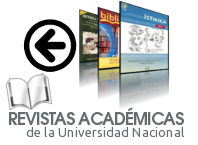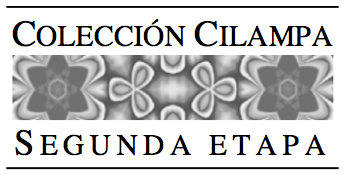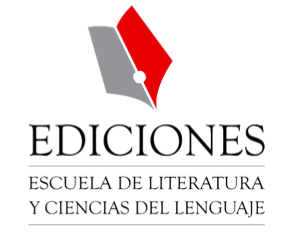Aspectos actuales de las complejidades de la enseñanza del inglés en Costa Rica
DOI:
https://doi.org/10.15359/rl.1-61.6Keywords:
teaching English, foreign language, Complexity Theory, autoethnographyAbstract
Current complexities of English teaching in Costa Rica’s public secondary education are discussed. Using an autoethnographic research approach, critical incidents of an EFL teacher are examined in light of Complexity Theory. Findings suggest that classrooms are unpredictable sites of struggle where multiple rationalities coexist (and often conflict), which must be understood before random decisions are made. For applied linguistics, the study is relevant at three levels: it expands the bulk of literature on the subject, it calls for more attention to the complexities of EFL, and it opens an avenue for reflection and future research directions.
References
Barrantes, Luis Guillermo. “Formación de nuevos docentes y educación continua para docentes en servicio: su aporte a la justicia social,” Letras, 57 (2015): 179-194.
Barrantes, Luis Guillermo. “¿Cómo establecer un puente entre la teoría de adquisición de segundas lenguas y la justicia social?,” Letras, 57 (2015): 195-212.
Benson, Phil. Teaching and Researching Autonomy. New York: Pearson Education, 2013.
Brown, Douglas H., “English Language Teaching in the ‘Post-Method’ Era: Toward Better Diagnosis, Treatment, and Assessment,” J. C. Richards and W. A. Renanyda, eds., Methodology in Language Teaching. New York: Cambridge, 2002. 9-18.
Canagarajah, A. Suresh. “Teacher Development in a Global Profession: An Autoethnography,” TESOL Quarterly 46, 2 (2012): 258-279. DOI: https://doi.org/10.1002/tesq.18.
Chaves Carballo, Olga, Ana Solano Campos and Nuria Villalobos Ulate. “In the Search for Social Justice: Implementing Critical Pedagogy in the Language Classroom,” Linguagem & Ensino 13, 2 (2010): 415-434.
Custer, Dwayne. “Autoethnography as a Transformative Research Method,” The Qualitative Report 19 (2014): 1-13.
Darder, Antonia. Reinventing Paulo Freire: A Pedagogy of Love. Boulder: CO: Westview Press, 2002.
Domian, Catalina, Hilda Fonseca, Rocío Lara and Sonia Rodríguez. “La enseñanza comunicativa del inglés en el ciclo diversificado en Costa Rica: imágenes de algunas realidades,” Letras 47 (2010): 11-34.
Ennser-Kananen, Johanna, Christian Fallas Escobar and Martha Bigelow. “It’s Practically a Must: Neoliberal Reasons for Foreign Language Learning,” International Journal of Society, Culture & Language 5, 1 (2017): 15-28.
Fallas, Christian. “Challenging the Monolingual Bias in EFL Programs: Towards a Bilingual Approach to L2 Learning,” Revista de Lenguas Modernas 24, 1 (2016): 249-266.
Gapper, Sherry E., “¿Adónde vamos y de dónde venimos en Lingüística Aplicada?,” Letras 53 (2013): 137-154.
Hadidi Tamjid, Nasrin. “Chaos/Complexity Theory in Second Language Acquisition,” Novitas-ROYAL 1, 1 (2007): 10-17.
Larsen-Freeman, Diane, “Chaos/Complexity Science and Second Language Acquisition,” Applied Linguistics 18, 2 (1997): 141-165. DOI: https://doi.org/10.1093/applin/18.2.141.
Larsen-Freeman, Diane and Lynne Cameron. “Research Methodology on Language Development from a Complex Systems Perspective,” The Modern Language Journal 92, 2 (2008): 200-2013. DOI: https://doi.org/10.1111/j.1540-4781.2008.00714.x.
Kayuni, Happy M. “Chaos-Complexity Theory and Education Policy: Lessons from Malawi’s Community Day Secondary Schools,” Bulgarian Journal of Science and Education (BJSC) 4, 1 (2010): 5-31.
Morrison, Keith. “Complexity Theory and Education,” APERA Conferences 2006, Hong Kong (2006): 1-12.
Oboe, Annalisa, and Bassi, Shaul. Experiences of Freedom in Postcolonial Literatures and Cultures. London: Routledge, 2011.
Presidencia de la República [de Costa Rica]. “Costa Rica Multilingüe,” Ente Rector del Plan Nacional de Inglés (2009). 1-15.
Presidencia de la República [de Costa Rica]. “Informe Nacional sobre el desarrollo de la Educación en Costa Rica” (2007).
Programa Estado de la Nación en Desarrollo Humano Sostenible: Estado de la Educación Costarricense: Resumen. San José, Costa Rica: Imprenta Prolitsa (2015). 1-52.
Quesada, Allen. “La enseñanza y aprendizaje del idioma inglés: la investigación y su impacto en la realidad costarricense,” Revista de Lenguas Modernas 19 (2013): 393-408.
Shiman, Davis. “Human Rights Education in Costa Rica: More Expectation than Implementation,” Revista Interamericana de Educación para la Democracia (RIED) 2, 1 (2009): 31-51.
Solano Campos, Ana. “Teaching and Learning English in Costa Rica,” Letras 52 (2012): 163-178.
Soleimani, Hassan. “Complexity Theory in CALL Curriculum in Foreign Language Learning,” International Journal of Applied Linguistics & English Literature 3, 3 (2014): 19-25. DOI: https://doi.org/10.7575/aiac.ijalel.v.3n.3p.19.
Sykes, Brent E. “Transformative Autoethnography: An Examination of Cultural Identity and its Implications for Learners,” Adult Learning 25, 9 (2014): 3-10. DOI: https://doi.org/10.1177/1045159513510147.
Thomas, Ebony Elizabeth. “Dilemmatic Conversations: Some Challenges of Culturally Responsive Discourse in a High School English classroom,” Linguistics and Education 24, 3 (2013): 1-20. DOI: https://doi.org/10.1016/j.linged.2013.03.004.
Tudor, Ian. The Dynamics of the Language Classroom. Cambridge: Cambridge University Press, 2001.
Walby, Sylvia. “Complexity Theory, Systems Theory, and Multiple Intersecting Social Inequalities,” Philosophy of the Social Sciences 37, 4 (2007): 449-470. DOI: https://doi.org/10.1177/0048393107307663.
Zainuddin, Hanizah. “Methods/Approaches of Teaching ESOL: A Historical Overview,” Fundamentals of Teaching English to Speakers of Other Languages in K-12 Mainstream Classrooms, 3rd ed. Dobuque, Iowa: Kendall/Hunt, 2011.
Published
How to Cite
Issue
Section
License
Principios básicos:
a) Los autores conservarán los derechos de propiedad intelectual de sus aportes o artículos;
b) Cada autor deberá indicar expresamente que ese artículo lo entrega, en calidad de exclusividad, a la revista LETRAS; y
c) La revista Letras se reservará el derecho de autorizar para fines académicos no lucrativos la reproducción y uso de ese material por parte de terceros, siempre que éstos indiquen expresamente la procedencia del artículo. Todo ello se postula en concordancia con la normativa de "Creative Commons Atribution License", recomendada.

This work is licensed under a Creative Commons Attribution-NonCommercial-NoDerivs 3.0 Costa Rica License.















